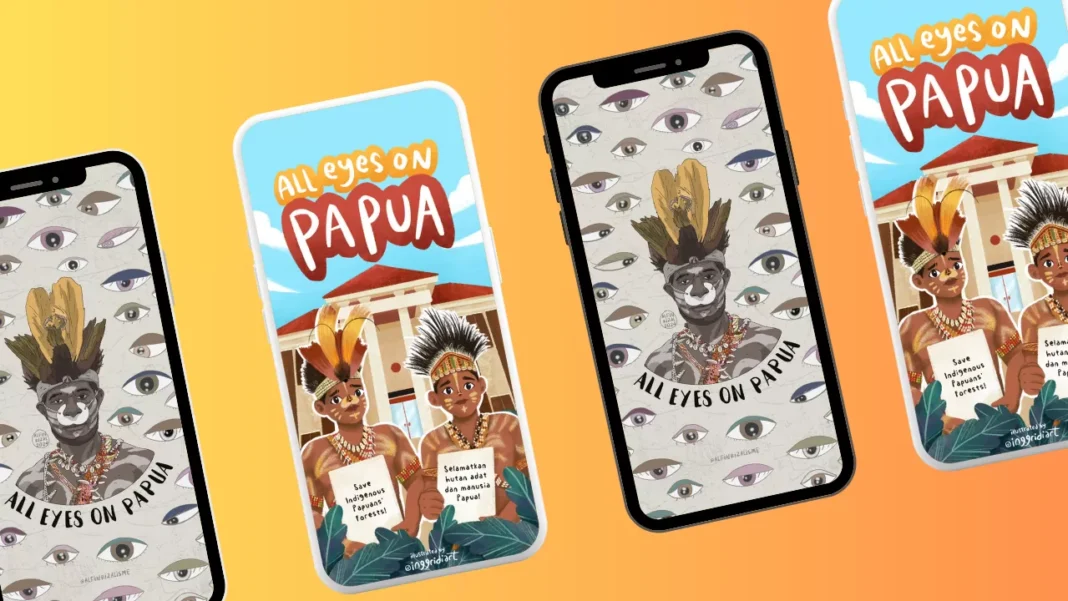In today’s world, social media has become a powerful tool for raising awareness and bringing attention to important issues. Recently, a slogan highlighting the humanitarian crisis in Gaza has gone viral, sparking a global movement to shed light on other causes around the world. This powerful message has been recast by advocates to bring attention to other pressing issues, from Papua to the Democratic Republic of Congo (DRC).
The original slogan, “Gaza is the largest open-air prison in the world,” was first used by Palestinian activists to draw attention to the dire situation in Gaza. The strip of land, home to nearly two million people, has been under a strict Israeli blockade for over a decade, leading to a severe humanitarian crisis. The slogan quickly gained traction on social media, with people from all over the world sharing it to raise awareness and show solidarity with the people of Gaza.
However, the impact of this slogan did not stop there. Inspired by its success, advocates for other causes have recast the slogan to bring attention to their own struggles. One such example is the ongoing conflict in Papua, a region in Indonesia that has been plagued by violence and human rights abuses for decades. The recast slogan, “Papua is the largest open-air prison in Asia,” has been used by activists to highlight the plight of the Papuan people and call for international intervention.
Similarly, the slogan has been adapted to bring attention to the Democratic Republic of Congo, where decades of conflict and political instability have resulted in a humanitarian crisis. The recast slogan, “Congo is the largest open-air prison in Africa,” has been used by advocates to raise awareness about the dire situation in the country and urge for action to end the suffering of its people.
The power of this slogan lies in its ability to capture the attention of people around the world and unite them in solidarity for various causes. It has become a symbol of hope and a call to action for those who are suffering in different parts of the world. By recasting the slogan, advocates have been able to bring attention to lesser-known issues and amplify the voices of those who are often marginalized and ignored.
Moreover, the use of social media has played a crucial role in the success of this movement. With just a few clicks, the message can reach millions of people, creating a ripple effect of awareness and action. This has also allowed for a global community to come together and show support for these causes, transcending borders and cultural barriers.
The recasting of this slogan has also sparked important conversations about the interconnectedness of global issues. While the struggles in Gaza, Papua, and the DRC may seem unrelated, they are all rooted in the same issues of oppression, violence, and human rights violations. By bringing attention to these issues, advocates are not only raising awareness but also highlighting the need for a collective effort to address these underlying problems.
Furthermore, the success of this movement has shown the power of grassroots activism and the impact that individuals can have in creating change. It is a reminder that even the smallest actions, such as sharing a slogan on social media, can make a difference and contribute to a larger movement for social justice.
In conclusion, the recasting of a slogan highlighting the humanitarian crisis in Gaza has sparked a global movement to bring attention to other causes around the world. This powerful message has united people from different backgrounds and cultures, showing the strength of solidarity and the power of social media in creating change. As we continue to raise awareness and advocate for these causes, let us remember that our voices are powerful and together, we can make a difference.



